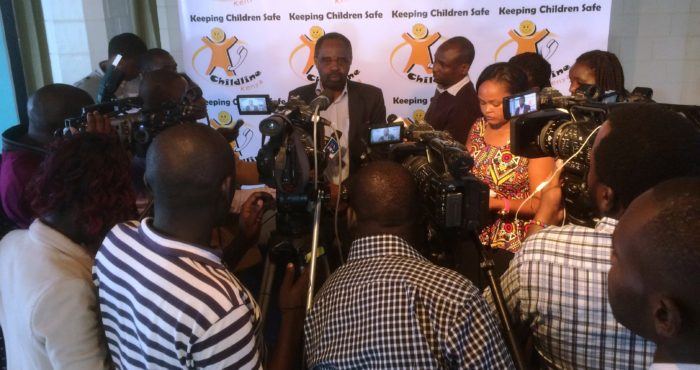This is the next in our series about our civil society programs and community philanthropy, which means working with communities to develop local solutions to local problems. This story comes from the Yetu Initiative, a Global Development Alliance with the U.S. Agency for International Development (USAID) in Kenya; Yetu means “ours” in Kiswahili. This post looks at how Yetu strengthens trust, one of three pillars of community philanthropy: assets, capacity, and trust. See the first in the series here.
In the university classroom overlooking Nairobi’s skyline, Dr. Nancy Booker of Aga Khan University asked the nonprofit workers to share their worst nightmares: nightmares about bad press coverage.
It was still early on a morning when representatives of four Yetu grantee organizations in Kenya had gathered for a training led by Booker and other faculty members of Aga Khan University’s Graduate School of Media and Communications (GSMC). The Yetu team organized the one-day workshop at the university’s offices as a way to build their capacity and encourage sharing of experiences among Kenyan civil society groups.
Representatives of Childline Kenya answer questions from the press at the launch of their national fundraising and awareness campaign the following week in Nairobi.

Representatives of Childline Kenya answer questions from the press at the launch of their national fundraising and awareness campaign the following week in Nairobi.
When a Media Story Can Damage Trust or Boost It
Despite the fears that her question raised, Booker made the discussion fun and created a safe environment for sharing experiences that many civil society organizations (CSOs) would rather forget. Booker, an experienced Kenyan journalist and television speaker, started with her own nightmare stories. She talked about getting nervous before a television interview, worrying that she would forget all her talking points and misspeak about the issue at hand.
Then she invited people from the four CSOs to share their horror stories. Everybody present had one: a reporter writing about their organization was careless with facts for an article. Another said that the interview went well and the reporter’s draft captured the essential facts, but an editor changed the story to heighten the drama. Everyone present agreed: a bad media story could undermine public trust in their CSO even if they managed to get a correction published.
On the other hand, they also agreed that a good media story could get their work to a larger audience. An article could raise awareness and prestige. But media coverage brought a risk. Radio and television interviews complicated the picture: Simply appearing nervous or distracting body language could create a bad impression. How could a nonprofit win?
Building Confidence for Growing Trust
Dr. Booker offered a starting point for the CSOs to build their confidence with the press. She said everybody had one very successful interview in their experience: the interview that landed them their current job. Drawing on that interview experience, she said, the CSO representatives had the basis for a good press interaction.
Booker worked with each of the three groups to practice their message and then do a test run on-camera. She provided feedback on their key messages, their presence and focus, and tips for preparation and follow-up. Booker and the other AKU faculty members engaged the CSOs throughout the day and offered further coaching in the future.
Growing the Environment for Vibrant Public Dialogue
The training demonstrated a feature of community philanthropy and Aga Khan Foundation’s approach to supporting CSOs. By sharing experiences among themselves and with experts like Booker, CSOs gained skills that would improve the environment for a vibrant civil society and public dialogue, through which they can build a strong foundation for trust.
The skills for communicating with the media are not intuitive. But Dr. Booker showed that media skills can be learned – you don’t have to be a journalist. The faculty at GSMC shared tools for sharing a CSO’s story in ways that conveyed authenticity while fitting television and radio formats.
A test of the workshop’s impact came the following week: participants from Childline Kenya prepared to launch their national campaign with a breakfast event and press conference. For months they had cultivated policy-makers and corporations, preparing for that day. Now came their chance to shine in front of the cameras. They showed the importance of their work protecting the most vulnerable members of society: children at risk of abuse.
Putting Trust to Work: The Campaign Launch
With the Yetu program staff, I rode downtown and attended the launch of the #ShineALightKE campaign for Childline Kenya. Reporters, bloggers from other CSOs, filmmakers and corporate citizens filled the seats at the tables around the hotel conference room. Social media channels buzzed with tweets and posts. And the Childline Kenya spokespeople, having rehearsed many times, performed well under the pressure. In the following days, national articles and TV reports came out, making Kenyans more aware of an important issue that many had never considered as a significant problem. And with the authority of their story, the CSO community had gained another trusted voice.
David Taylor is a Communications Officer with the Aga Khan Foundation.